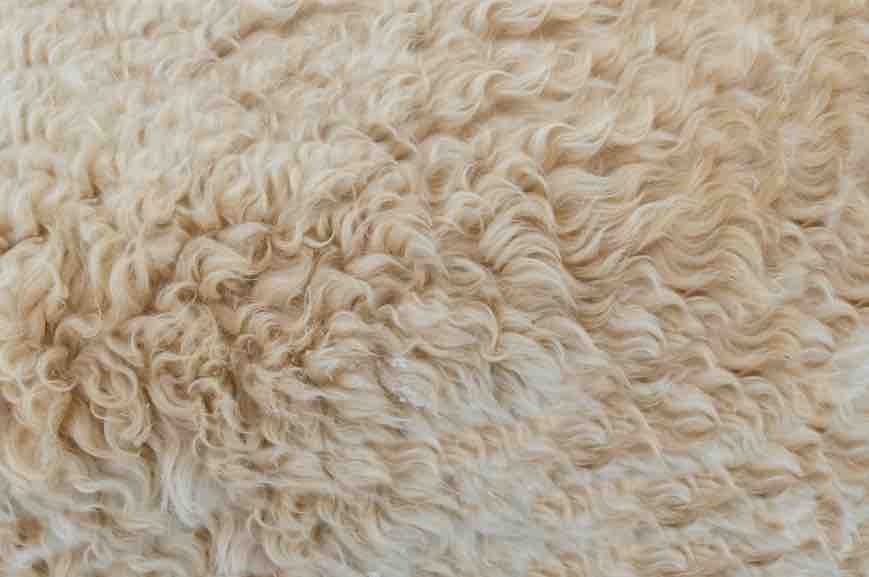Learn about the durability and longevity of wool & other natural materials, making these products an excellent investment for consumers seeking sustainable and long-lasting one of a kind pieces.
Natural Material and Fibers
Natural materials and fibers are an important component of many products we use in our daily lives. These materials come from plants, animals, or minerals, and are often preferred for their sustainability and environmental benefits. Natural fibers and materials can be found in a wide range of products, from clothing and textiles to building materials and household goods.
One of the most common natural fibers is cotton, which comes from the cotton plant. Cotton is widely used in the production of clothing, bedding, and other textiles due to its softness, breathability, and absorbency. Another popular natural fiber is wool, which is obtained from sheep and is known for its warmth and moisture-wicking properties. These fibers are often used in the production of sweaters, blankets, and other cold-weather garments.
Other natural materials, such as bamboo, hemp, and jute, are also gaining popularity for their sustainability and versatility. Bamboo, for example, is a fast-growing grass that can be used to make a wide range of products, including clothing, flooring, and furniture. Hemp, on the other hand, is a durable and strong fiber that is often used in the production of ropes, textiles, and paper. Jute is a natural fiber that is commonly used to make burlap, rope, and other products due to its strength and flexibility.
In addition to their environmental benefits, natural materials and fibers also offer unique properties that make them attractive for use in various products. For example, natural materials like wood and cork are often used in the production of flooring and furniture due to their natural beauty, durability, and biodegradability. Similarly, natural fibers like silk and linen are known for their luxurious texture and breathability, making them popular choices for high-end clothing and bedding.
Overall, natural materials and fibers play an important role in our daily lives and are valued for their sustainability, versatility, and unique properties. As consumers become more conscious of the environmental impact of their purchases, the demand for products made from natural materials and fibers is expected to continue to grow. By using these materials in a range of products, we can contribute to a more sustainable and eco-friendly future.
Benefits of Using Natural Fibers in Rug-Making
Natural fibers such as wool, cotton, jute, and sisal have been used for thousands of years to create beautiful and durable rugs. There are countless benefits to using natural fibers in rug-making, from their sustainability and eco-friendliness to their longevity and aesthetic appeal.
One of the key benefits of natural fibers in rug-making is their sustainability. Unlike synthetic fibers, which are often made from non-renewable resources and can take centuries to break down in landfills, natural fibers are biodegradable and can be replenished through sustainable farming practices. This makes natural fiber rugs a great choice for environmentally conscious consumers who want to reduce their carbon footprint.
In addition to their sustainability, natural fiber rugs are also known for their durability and longevity. Wool, for example, is incredibly resilient and has natural lanolin oils that repel dirt and resist staining, making it a great choice for high-traffic areas. Cotton is also a popular choice for rugs due to its strength and ability to withstand wear and tear.
Another benefit of using natural fibers in rug-making is their aesthetic appeal. Natural fiber rugs have a timeless and organic look that can bring warmth and texture to any room.
In addition to their sustainability, longevity, and aesthetic appeal, natural fiber rugs also have hypoallergenic qualities, making them a great choice for individuals with allergies or sensitivities. Wool, for example, has natural lanolin oils that repel dust mites, mold, and mildew, making it a great choice for those who suffer from allergies.
Overall, natural fibers offer a multitude of benefits when it comes to rug-making. From their sustainability and eco-friendliness to their durability and aesthetic appeal, natural fiber rugs are a great choice for anyone looking to add a touch of nature to their home while also making a responsible environmental choice.
Durability & Longevity of Wool Fibers
Wool fibers are well known for their resilience and durability, making them a popular choice for a wide range of products. The natural properties of wool contribute to its longevity, making it a highly sought-after material for clothing, textiles, and furnishings.
One of the key factors contributing to the durability of wool fibers is their inherent strength. Wool fibers have a natural crimp that allows them to bounce back to their original shape, even after being stretched or compressed. This resilience means that wool garments and products are less likely to lose their shape or become misshapen over time, making them a sustainable and long-lasting choice.
Moreover, wool fibers are also resistant to tearing and abrasion, making them particularly well-suited for high-traffic areas or items that are subject to frequent use. This durability ensures that wool products can withstand the test of time, retaining their quality and appearance even after years of wear and tear.
In addition to their strength and resilience, wool fibers also possess natural anti-wrinkle properties, allowing garments and textiles to maintain a smooth and unwrinkled appearance even after extended periods of use. This low-maintenance quality further adds to the longevity of wool products, reducing the need for frequent washing or ironing.
Overall, the durability and longevity of wool fibers make them an excellent investment for consumers seeking sustainable and long-lasting products. Whether it's a cozy sweater, a durable rug, or a timeless piece of furniture, wool's natural strength and resilience ensure that it will continue to provide comfort and functionality for years to come.

